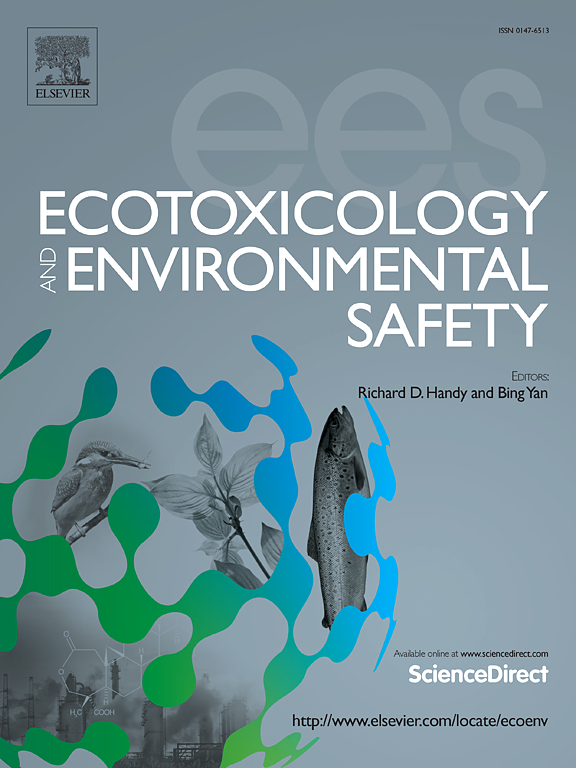微塑料摄入导致韩国桡足类 Tigriopus koreanus 的能量损失。
IF 6.2
2区 环境科学与生态学
Q1 ENVIRONMENTAL SCIENCES
引用次数: 0
摘要
在海洋环境中,接触微塑料会对各种生物造成威胁。据报道,摄入微塑料会导致各种不利影响,包括死亡率上升、发育迟缓和繁殖能力下降。MPs对桡足类这些重要过程的不利影响可能是由摄入的MPs对能量获取的阻碍作用引起的。然而,很少有研究从能量预算的角度探讨 MPs 对桡足类的生物影响。因此,我们分析了摄入聚苯乙烯微塑料的海洋桡足类(Tigriopus koreanus)的三磷酸腺苷(ATP)水平、酶活性、游泳距离和排泄率。我们的研究结果表明,摄入聚苯乙烯微塑料可能会阻碍桡足类获得充足的营养,并导致它们在能量负担方面陷入恶性循环。我们的研究提供了生化证据,证明桡足类因摄入 MPs 而导致能量预算减少。此外,这项研究通过提供微塑料对海洋初级消费者影响的先进证据,加深了我们对微塑料风险的理解。本文章由计算机程序翻译,如有差异,请以英文原文为准。
Microplastic ingestion induces energy loss on the copepod Tigriopus koreanus
In marine environments, exposure to microplastics threaten various organisms. A large portion of MPs may be bioavailable to copepods, and ingesting MPs has been reported to induce various adverse effects, including increased mortality, developmental retardation, and decreased reproduction. Adverse effects of MPs on these important processes of copepods may be induced by the obstructive effects of the ingested MPs on energy acquisition. However, few studies have explored the biological effects of MPs on copepods in terms of energy budgets. Therefore, we analyzed ATP (adenosine triphosphate) levels, enzyme activities, swimming distances, and excretion rates in marine copepods (Tigriopus koreanus) that have ingested polystyrene microplastics. Our results indicate that the ingestion of MPs may prevent adequate acquisition of nourishment and lead the copepods into a vicious circle in the respect to energetic burden. Our study provides biochemical evidence for a reduction in the energy budget of copepods due to MPs ingestion. Further, this study increases our understanding of the risks of microplastics, by providing advanced evidences of their effects on marine primary consumer.
求助全文
通过发布文献求助,成功后即可免费获取论文全文。
去求助
来源期刊
CiteScore
12.10
自引率
5.90%
发文量
1234
审稿时长
88 days
期刊介绍:
Ecotoxicology and Environmental Safety is a multi-disciplinary journal that focuses on understanding the exposure and effects of environmental contamination on organisms including human health. The scope of the journal covers three main themes. The topics within these themes, indicated below, include (but are not limited to) the following: Ecotoxicology、Environmental Chemistry、Environmental Safety etc.

 求助内容:
求助内容: 应助结果提醒方式:
应助结果提醒方式:


